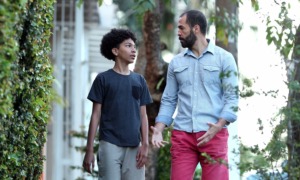 In a previous column about the harm done to battered women and their children by child protective services agencies, I told the story of Sharwline Nicholson, lead plaintiff in a successful class-action lawsuit to stop the child protective services agency in New York City from taking children just because their mothers had been beaten. (My organization’s vice president was co-counsel for plaintiffs in that suit.)
In a previous column about the harm done to battered women and their children by child protective services agencies, I told the story of Sharwline Nicholson, lead plaintiff in a successful class-action lawsuit to stop the child protective services agency in New York City from taking children just because their mothers had been beaten. (My organization’s vice president was co-counsel for plaintiffs in that suit.)
Nicholson was beaten mercilessly by a boyfriend when she decided to break off the relationship. But even as she was bleeding profusely, suffering from a broken arm, broken ribs and gashes to her head, as she called 911 and waited for an ambulance to take her to a hospital, she arranged for a neighbor to care for her children.
But CPS deemed Nicholson a bad mother for “engaging in domestic violence” and took away her children for weeks. One child was abused in foster care. “It reached the point where I said ‘Oh, why did I call 911,’” Nicholson said.
A survey of thousands of domestic violence survivors suggests that this kind of regret is common — for good reason. The survey found that even reaching out for help to the wrong person can make things worse — if that person is a “mandated reporter” of child abuse or other domestic violence.
The National LGBTQ Domestic Violence Capacity Building Learning Center surveyed 3,072 domestic violence survivors who had contacted an online chat service run by the National Domestic Violence Hotline. They surveyed another 454 people who contacted the hotline on behalf of a friend.
They were questioned about what happened when they asked someone for help and if that person was a mandated reporter.
Fully half of those surveyed said having a mandated reporter contact either police or child protective services made things “much worse.” Another 12 percent said it made things “a little worse.” Only 15 percent said the intervention triggered by mandatory reporting made things any better.
Most of those whose situation was reported were not even warned that information they thought they were giving in confidence would be passed on to law enforcement or child protective services. Among those who were warned, the warning often prompted them to withhold information. Among their comments:
“I lied to them and said things were fine.”
“I stopped going to my doctor’s office.”
“It made me hold back things that I thought they would tell the school.”
“I talk to no one. There’s no one I can trust, no one I can turn to and nowhere I can go.”
And one said simply: “I didn’t want my kids taken away so I didn’t talk.”
Many survivors said they have not asked someone for help at all for fear that the person would be legally required to report the information.
Of course those in child welfare who have no understanding of the harm done to children by tearing them from parents — especially when the parents are themselves victims of domestic violence — might say to all this: “So what if the adults regret it? At least this way we’re saving the children.”
Except it’s children themselves who are most reluctant to seek help precisely because of mandatory reporting. While overall, one in three survivors say they have not asked someone for help because of mandatory reporting laws, for survivors under age 18 the figure rises to 48 percent.
Fear of child welfare intervention was not the only reason for negative responses. In some cases survivors said law enforcement took no action, leaving the survivors at the mercy of abusers who had become even more angry because police had come to the door.
But this survey adds to the mass of evidence that mandatory reporting does no good, and can do a great deal of harm. Like residential treatment, and parking place shelters, mandatory reporting is one more failed child welfare intervention put into place with no study and no testing beforehand, for which there is no evidence of success. It still exists because it makes the helpers feel good and makes politicians look like they’re “cracking down on child abuse.”
Even some major early proponents of mandatory reporting have changed their minds. And now, to all those who have studied mandatory reporting and found it worthless at best, add the voices of all those domestic violence survivors who say it did them harm.
Richard Wexler is executive director of the National Coalition for Child Protection Reform.




























